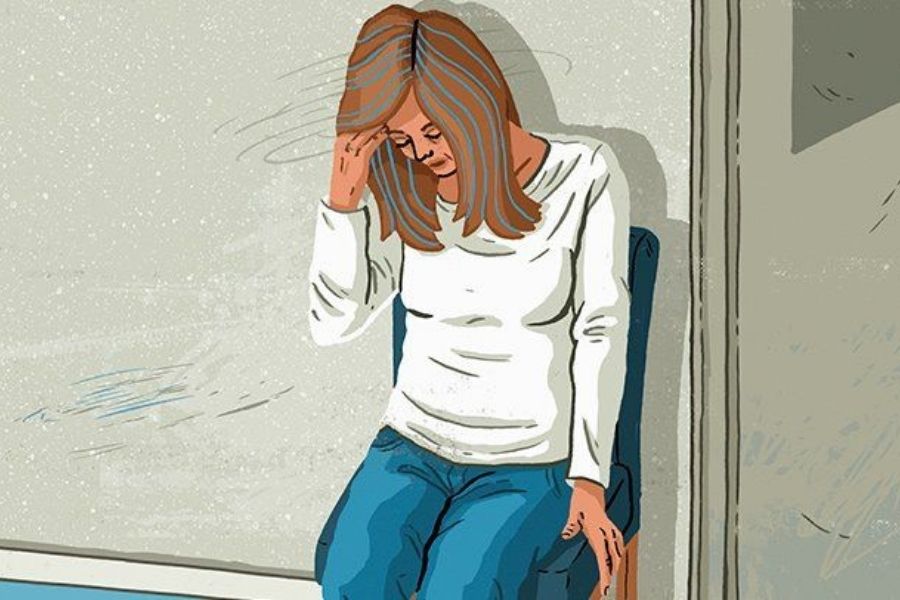Constipation is the most common gastrointestinal complaint. Constipation is when a person is facing difficulty in emptying the large bowel. One can treat constipation by making lifestyle changes or using home remedies, but it is recommended to consult a doctor in case of severe constipation. Constipation is defined by the hard, dry, painful, and difficult bowel movement. When a person has less than three times a week of bowel movement, severe constipation lasts longer.
There are many reasons common causes of constipation: the stool passes from the colon is too slow; the slower stool moves through the digestive tract, and more water is absorbed by the colon, making the feces harder. Constipation may result in blockage of the large intestine, which requires emergency medical attention. Lack of fibers, water intake, or lack of physical activity can be the common causes of constipation.
Treat constipation as early as possible because it can lead to internal damage and other health problems if left untreated.
Signs And Symptoms Of Constipation

If you are constipated, then you can experience the following signs and symptoms.
- Bowel movement less than three times a week
- Hard and dry stool
- Difficult passage of the stool
- Straining and pain during a bowel movement
- Less stool passing than usual
- Feeling bloated
- Nausea
- Feeling of fullness, even after a bowel movement
- Loss of appetite
- Experience rectal blockage
What Are The Common Causes Of Constipation?
The colon absorbs the water from the residual food, and then the waste is produced. Waste is propelled to the rectum, which excretes the waste from the body. If the stool remains in the colon for a longer time, the stool becomes hard and dry. Mentioned below are the common causes of constipation.
1. Lack Of Proper Diet

People with less intake of fibers experience constipation most often. Fibers promote regular bowel movements. High fiber food like fruits, vegetables, whole grains, etc. keeps the stool soft. Avoid having a poor diet or eating junk food as they are the causes responsible for constipation.
2. Low Intake Of Water

Lack of water intake causes constipation, and you face difficulty in bowel movements. Water is important for digesting the food, moving the waste along the digestive tract, and keeping the stool soft. Regularly drinking water helps in reducing the risk of constipation. Caffeinated soda, coffee, and alcohol make constipation worse.
3. Physically Inactive

Studies show that physically fit people are less prone to constipation than those who are less physically active. Less physical activities can lead to constipation; therefore, older people are more prone to suffer from constipation.
4. Underlying Medical Conditions

The underlying medical conditions can cause the problem of constipation.
- Diseases like stroke, diabetes, and Parkinson’s disease
- Colon problems such as intestinal obstruction, irritable bowel syndrome, and diverticulosis
- Hormonal issues like underactive thyroid gland (hypothyroidism)
- Cancer treatment like chemotherapy and opioid pain relief medication
5. Aging

As people age, they get more prone to constipation. The exact reason behind this is still not clear. It can be that the food takes a long time to pass through the digestive tract and older people are less physically active, increasing the higher risk of constipation. Other causes are some medical conditions, medication, and low fiber and water intake, contributing to increased risk.
6. Change In Routine

The digestive system can be affected if the person travels and usually changes the routine. Eating the meal, going to sleep, and using the bathroom at different times can increase the constipation risk. Your body gets habitual to a particular routine, performing necessary tasks at a specific time. Changing routine now and then disturbs your body’s performance.
7. Less Use Of The Bathroom When Necessary

If someone ignores the urge to have a bowel movement, then the urge slowly goes away, and they no longer feel the need to go. The longer the stool delay, the more it becomes hard and dry, causing constipation.
8. Overuse Of Laxatives

People take a laxative for a regular bowel movement. Regular intake of the laxative allows the body to get used to it and causes the person to take the laxative even when it isn’t needed. Therefore, the laxative becomes the habit, and the person becomes more prone to the condition of constipation.
Who Are At High Risk Of Constipation?
People may be at higher risk who are:
- Eating a poor diet lacks fibers and water consumption.
- Not so physically active, that is, they don’t exercise.
- Age of 65 or older. As older people are less physically active, they may have an underlying disease.
- Restricted to bed. If a person has a certain medical condition like spinal cord injuries, then bowel movement is difficult.
- Women and children.
- Pregnant women. The hormonal imbalance and pressure on the intestines as the baby grows may be responsible for constipation.
Conclusion
Every person has their own unique bowel movements like some go three times a day or go three times a week. The most common causes of constipation can be dietary habits, less water intake, medical conditions, and many other factors. Early and common constipation can be treated easily at home without medical attention. You can use home remedies, make some changes in your daily diet, and increase fibers’ intake and water; then, constipation can be treated. Regular exercise will also help in this condition. If the constipation cause is unknown or it comes on suddenly, and the symptoms remain persistent or worse, consider talking to the doctor for medical treatment.







